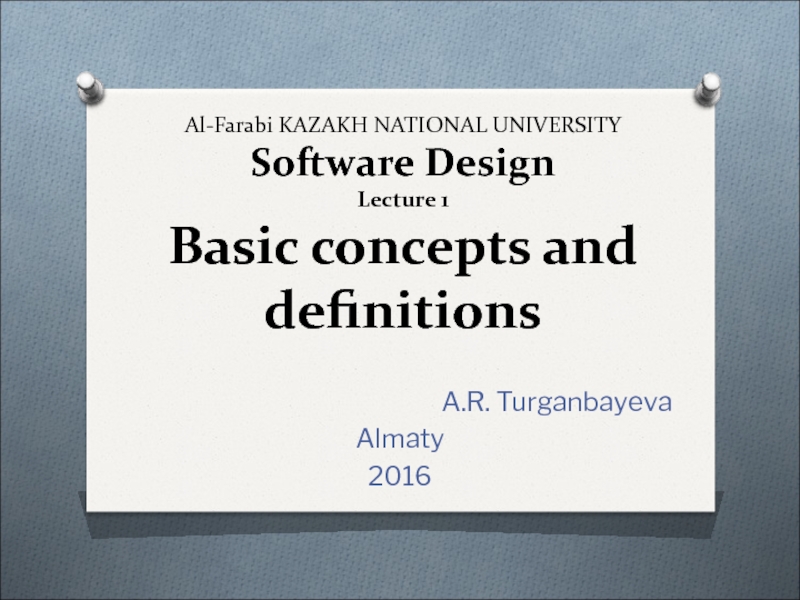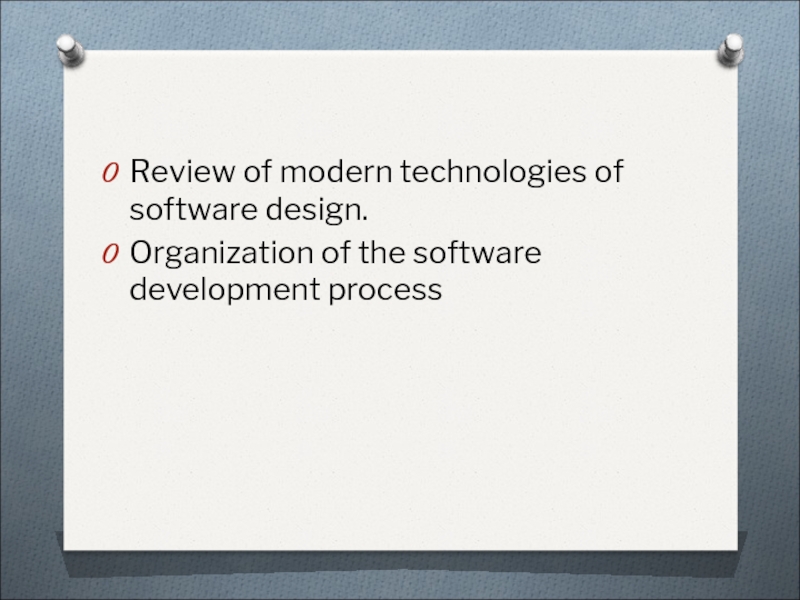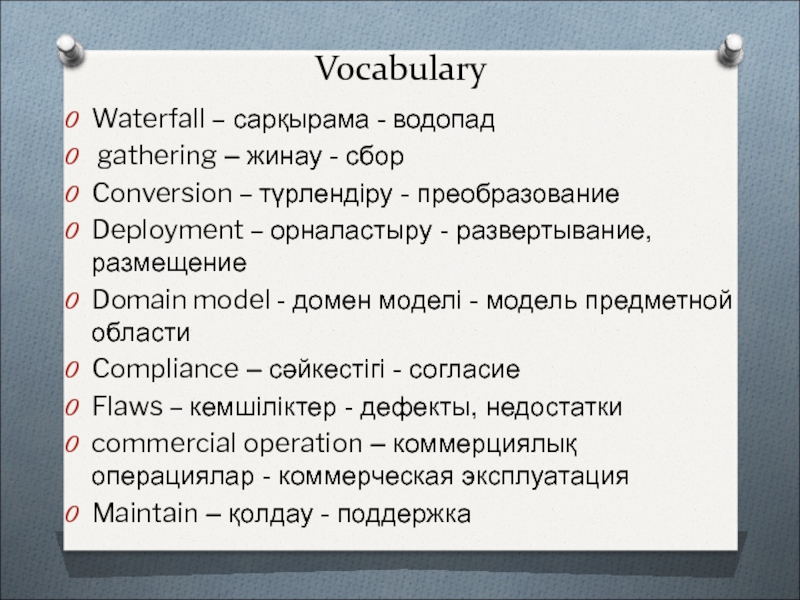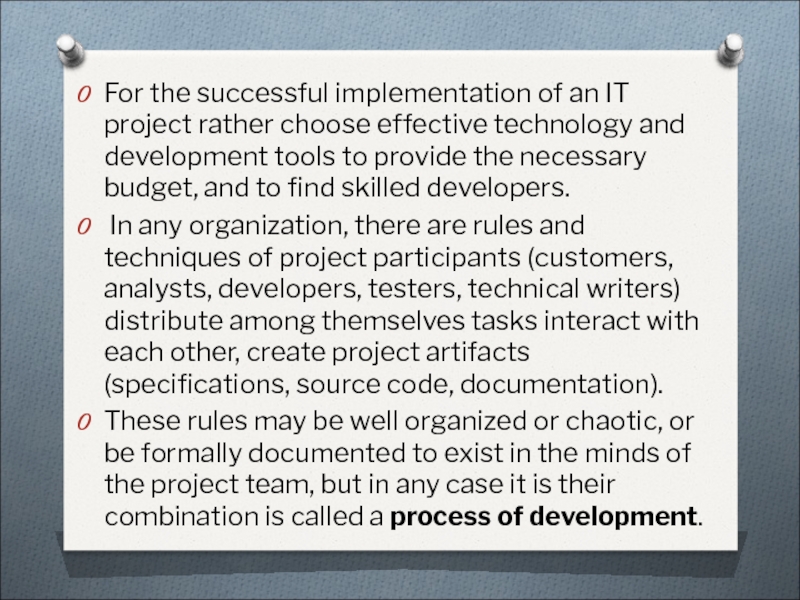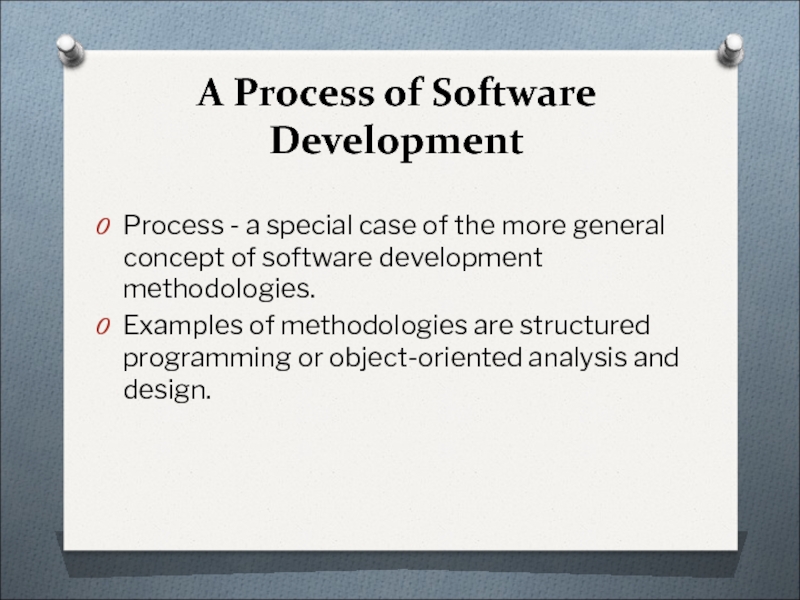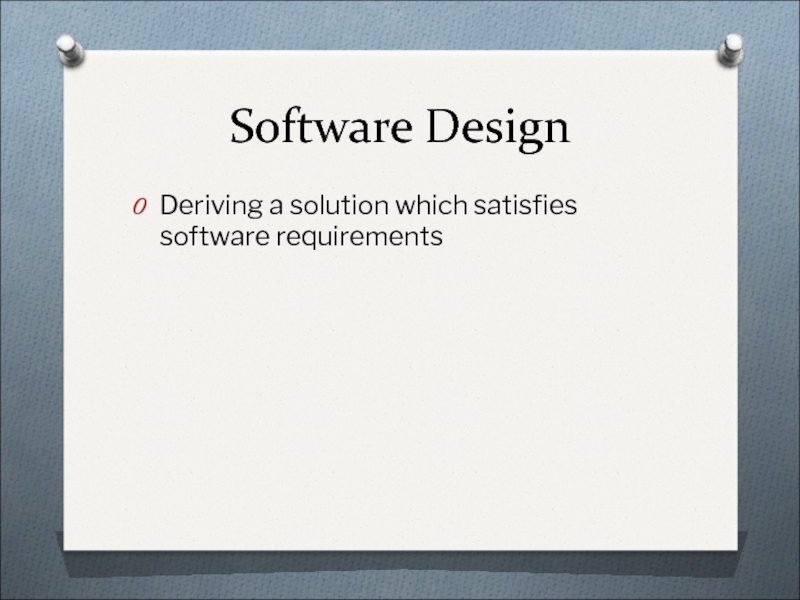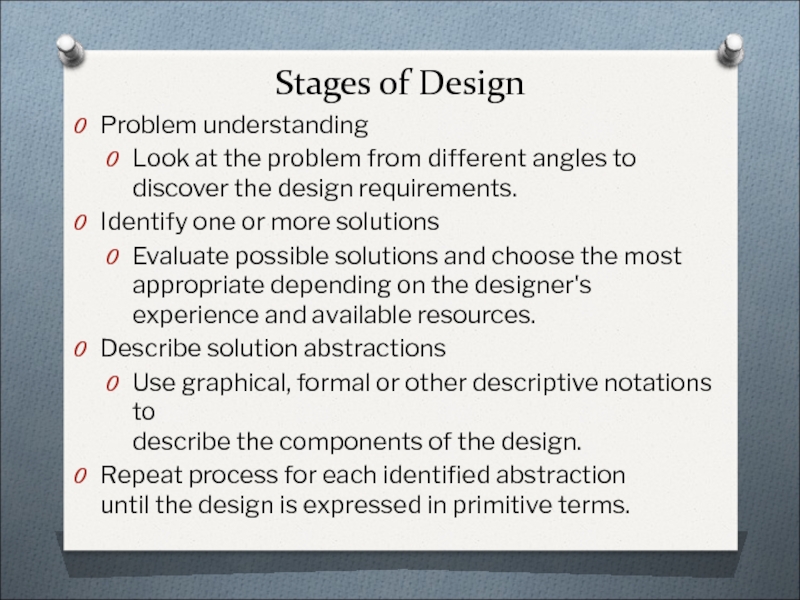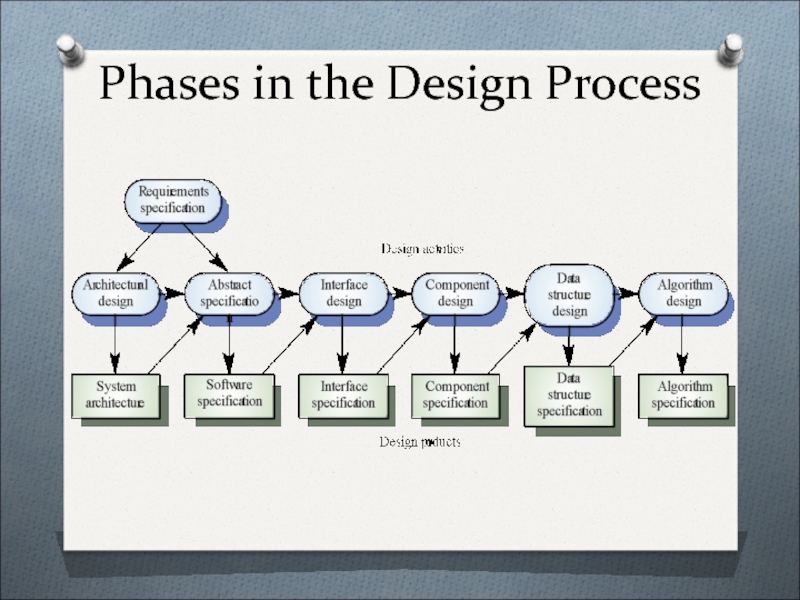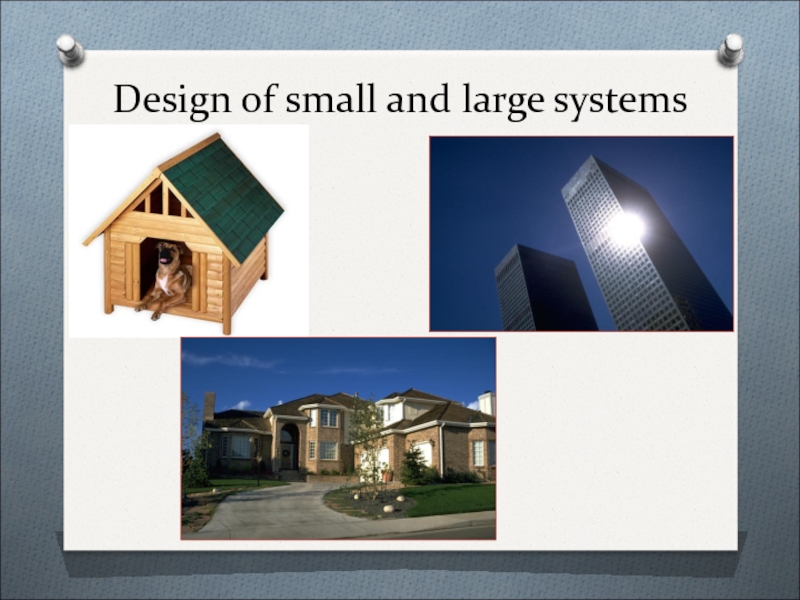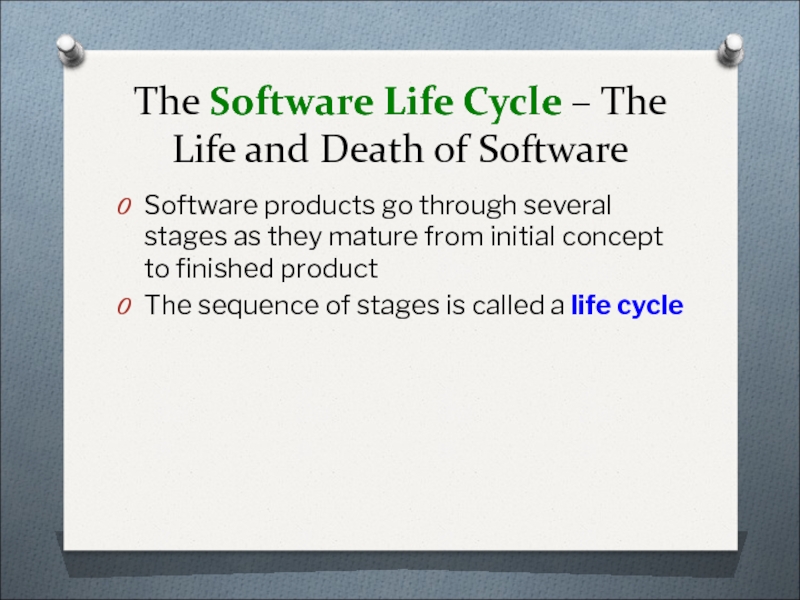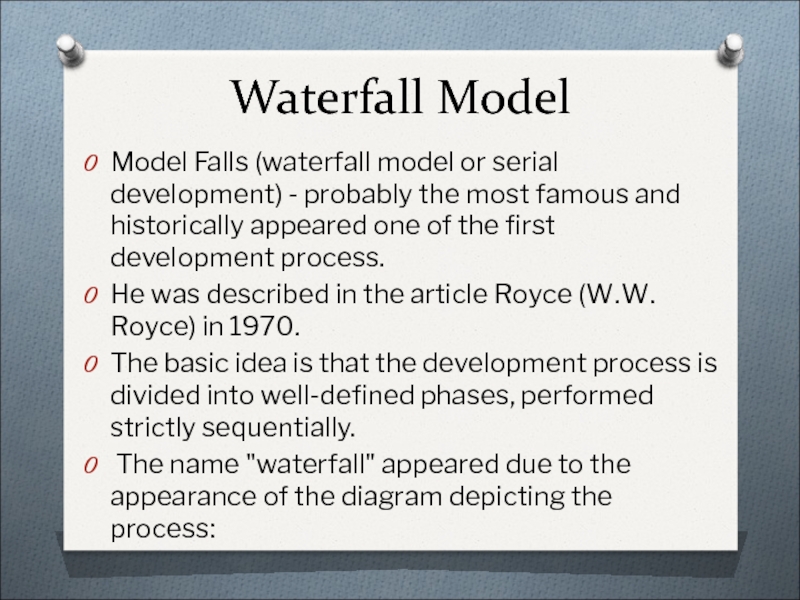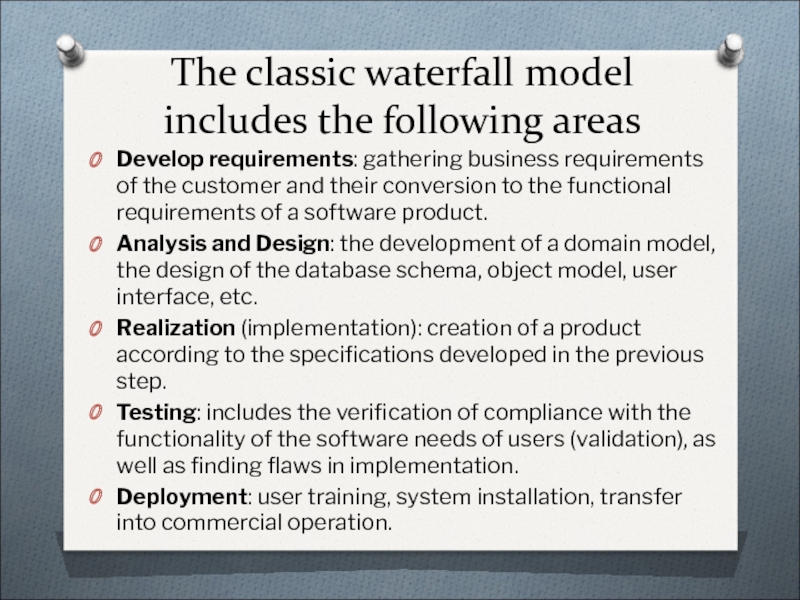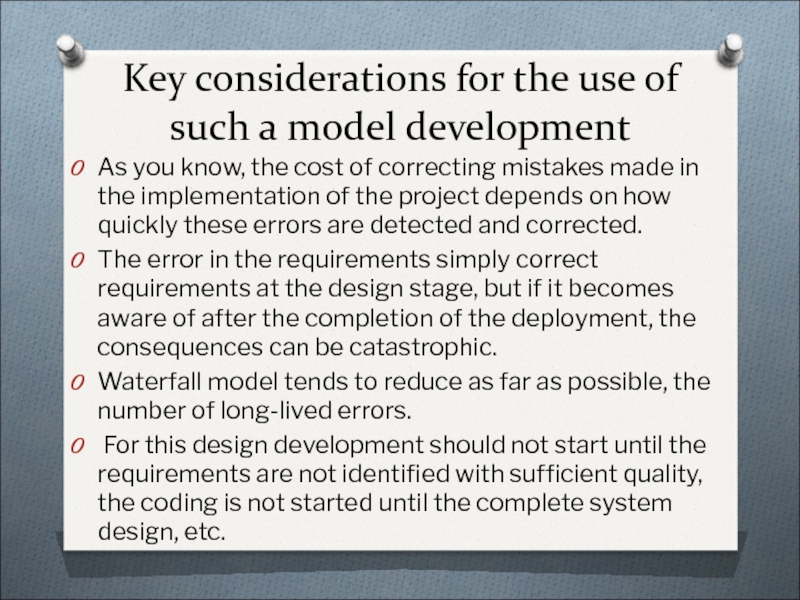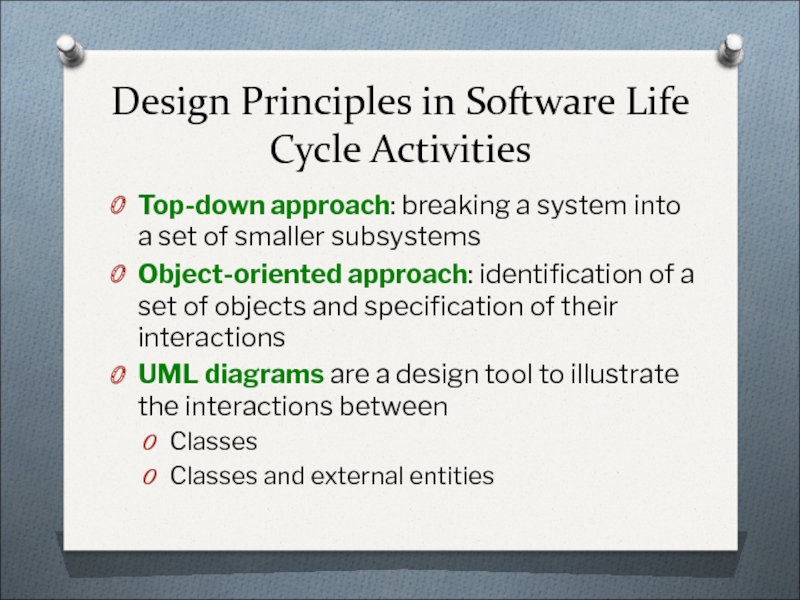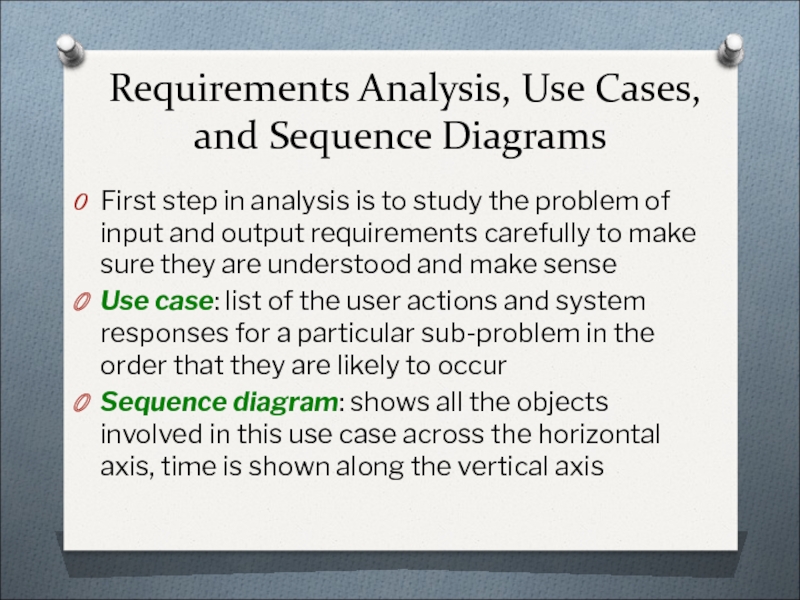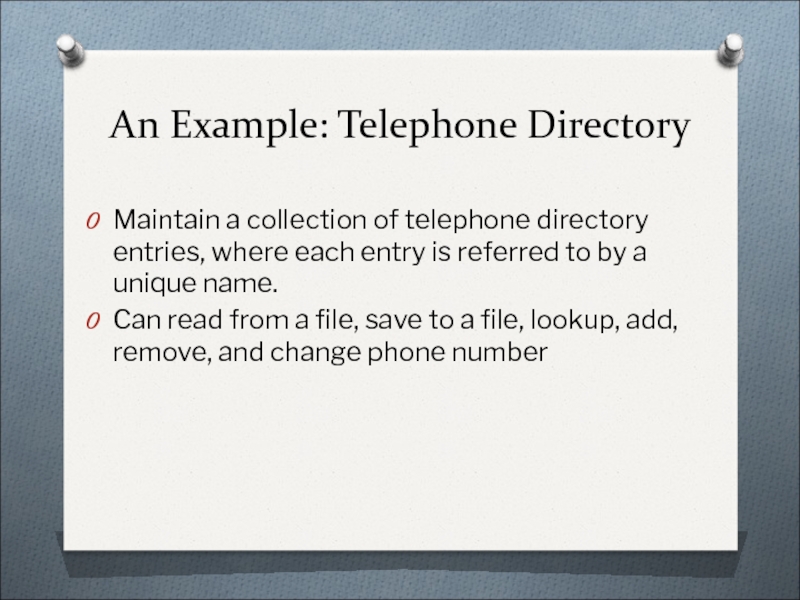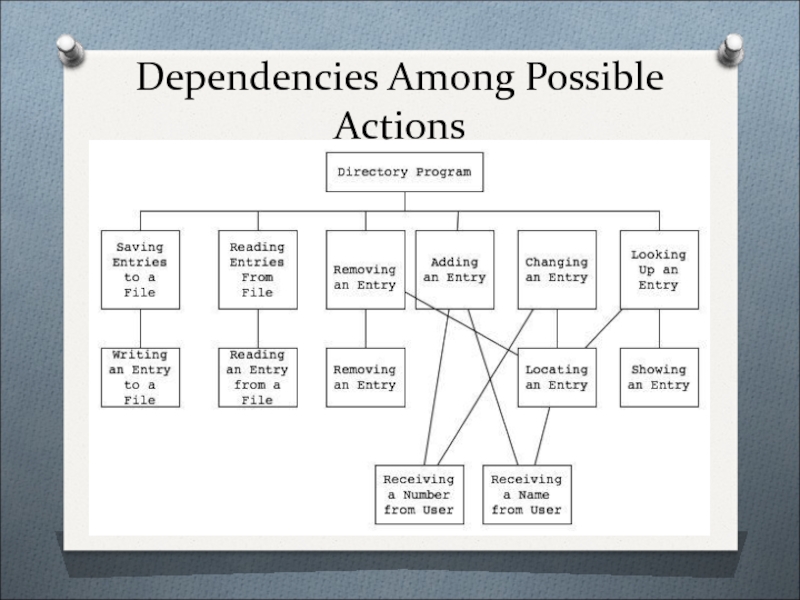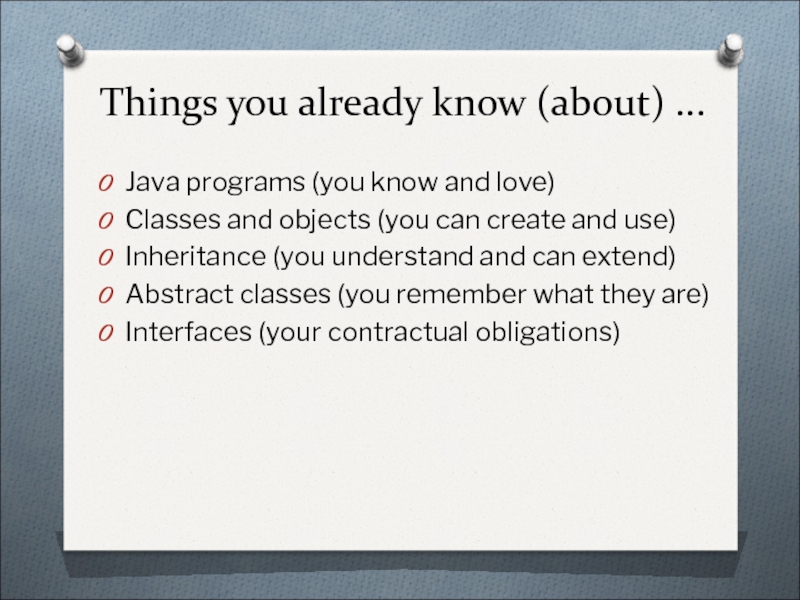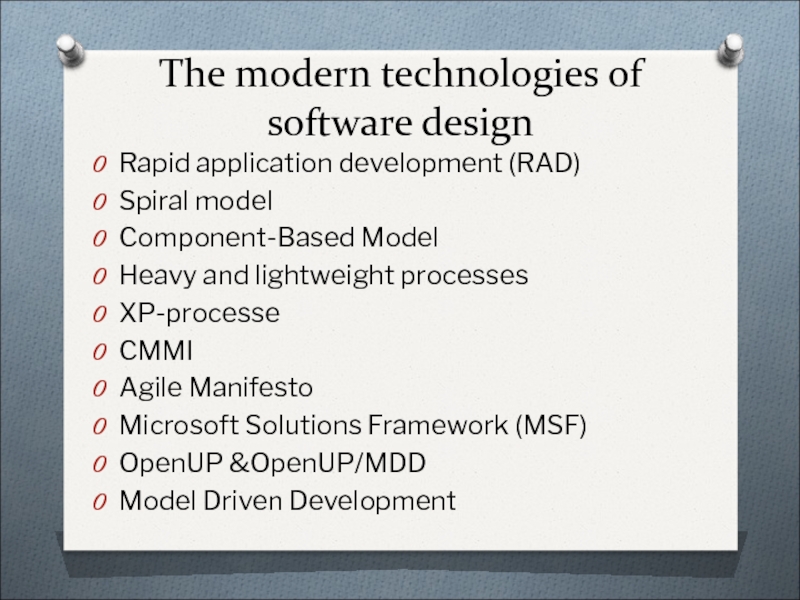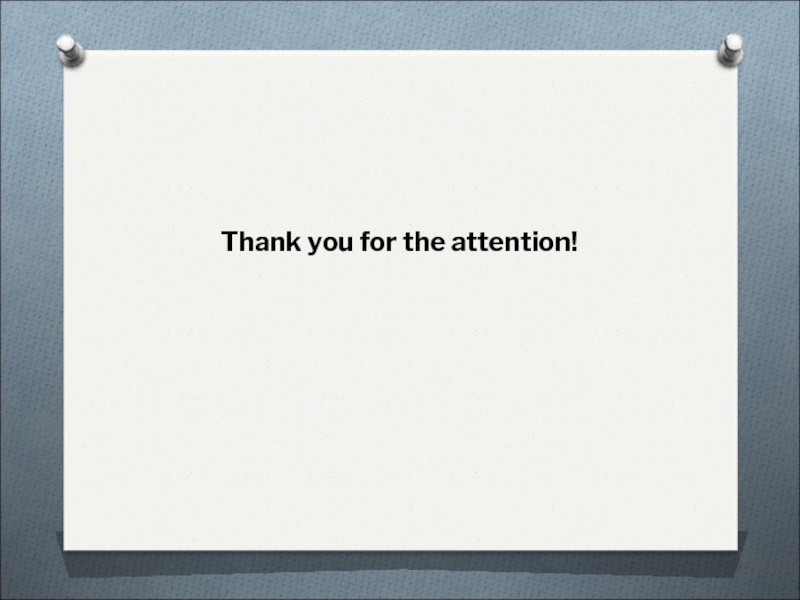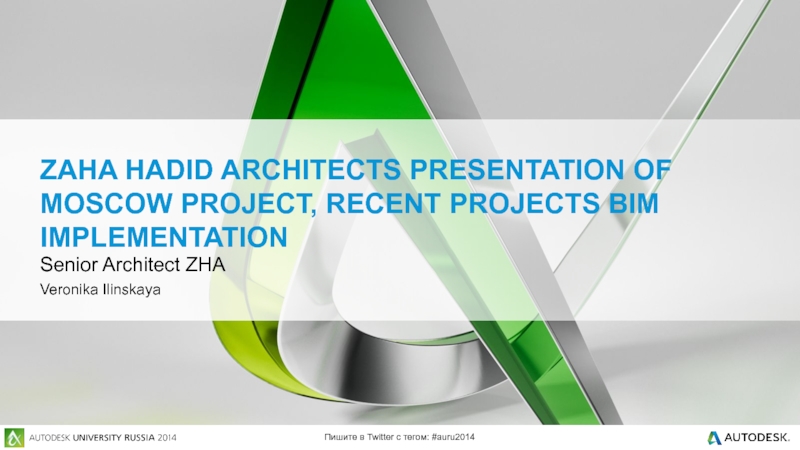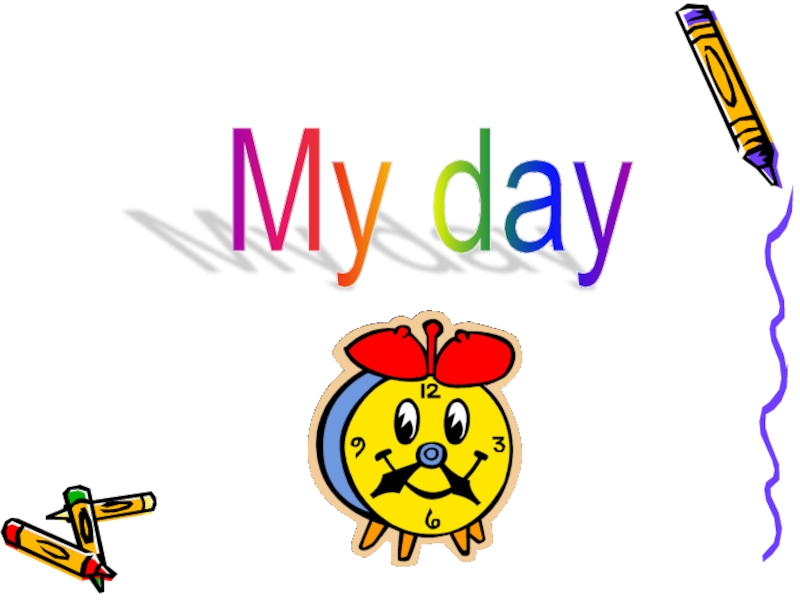- Главная
- Разное
- Дизайн
- Бизнес и предпринимательство
- Аналитика
- Образование
- Развлечения
- Красота и здоровье
- Финансы
- Государство
- Путешествия
- Спорт
- Недвижимость
- Армия
- Графика
- Культурология
- Еда и кулинария
- Лингвистика
- Английский язык
- Астрономия
- Алгебра
- Биология
- География
- Детские презентации
- Информатика
- История
- Литература
- Маркетинг
- Математика
- Медицина
- Менеджмент
- Музыка
- МХК
- Немецкий язык
- ОБЖ
- Обществознание
- Окружающий мир
- Педагогика
- Русский язык
- Технология
- Физика
- Философия
- Химия
- Шаблоны, картинки для презентаций
- Экология
- Экономика
- Юриспруденция
Basic concepts and definitions презентация
Содержание
- 1. Basic concepts and definitions
- 2. Review of modern technologies of software design. Organization of the software development process
- 3. Vocabulary Waterfall – сарқырама - водопад
- 4. The Software Challenge People may come and
- 5. The Software Specification Challenge Software specification is
- 6. For the successful implementation of an IT
- 7. A Process of Software Development Process
- 8. Software Design Deriving a solution which satisfies software requirements
- 9. Stages of Design Problem understanding Look at
- 10. The Design Process Any design may be
- 11. Phases in the Design Process
- 12. Design of small and large systems
- 13. The Software Life Cycle – The Life
- 14. Waterfall Model Model Falls (waterfall model
- 15. The Diagram of Waterfall Model
- 16. The classic waterfall model includes the following
- 17. Key considerations for the use of such
- 18. Design Principles in Software Life Cycle Activities
- 19. Requirements Analysis, Use Cases, and Sequence Diagrams
- 20. Pre- and Postconditions Precondition: a statement of
- 21. An Example: Telephone Directory Maintain a collection
- 22. Dependencies Among Possible Actions
- 23. Things you already know (about) ... Java
- 24. The modern technologies of software design Rapid
- 25. Thank you for the attention!
Слайд 1Al-Farabi KAZAKH NATIONAL UNIVERSITY
Software Design
Lecture 1
Basic concepts and definitions
A.R. Turganbayeva
Almaty
2016
Слайд 2Review of modern technologies of software design.
Organization of the software
development process
Слайд 3Vocabulary
Waterfall – сарқырама - водопад
gathering – жинау - сбор
Conversion –
түрлендіру - преобразование
Deployment – орналастыру - развертывание, размещение
Domain model - домен моделі - модель предметной области
Compliance – сәйкестігі - согласие
Flaws – кемшіліктер - дефекты, недостатки
commercial operation – коммерциялық операциялар - коммерческая эксплуатация
Maintain – қолдау - поддержка
Deployment – орналастыру - развертывание, размещение
Domain model - домен моделі - модель предметной области
Compliance – сәйкестігі - согласие
Flaws – кемшіліктер - дефекты, недостатки
commercial operation – коммерциялық операциялар - коммерческая эксплуатация
Maintain – қолдау - поддержка
Слайд 4The Software Challenge
People may come and go, but software may remain
A
software product is often expected to be used for an extended period of time by someone who did not write the program and who is not intimately familiar with its internal design
Software may evolve
New features may be added, environments may change, so initial specification may be incomplete
Software may evolve
New features may be added, environments may change, so initial specification may be incomplete
Слайд 5The Software Specification Challenge
Software specification is not easy
It should be generated
at the beginning of project and maintained up-to-date while the software goes through changes
It should be clarified through extensive interaction between the users and the system analyst, and then approved by the users
It should be clear and understandable to any programmer
It should be clarified through extensive interaction between the users and the system analyst, and then approved by the users
It should be clear and understandable to any programmer
Слайд 6For the successful implementation of an IT project rather choose effective
technology and development tools to provide the necessary budget, and to find skilled developers.
In any organization, there are rules and techniques of project participants (customers, analysts, developers, testers, technical writers) distribute among themselves tasks interact with each other, create project artifacts (specifications, source code, documentation).
These rules may be well organized or chaotic, or be formally documented to exist in the minds of the project team, but in any case it is their combination is called a process of development.
In any organization, there are rules and techniques of project participants (customers, analysts, developers, testers, technical writers) distribute among themselves tasks interact with each other, create project artifacts (specifications, source code, documentation).
These rules may be well organized or chaotic, or be formally documented to exist in the minds of the project team, but in any case it is their combination is called a process of development.
Слайд 7A Process of Software Development
Process - a special case of
the more general concept of software development methodologies.
Examples of methodologies are structured programming or object-oriented analysis and design.
Examples of methodologies are structured programming or object-oriented analysis and design.
Слайд 9Stages of Design
Problem understanding
Look at the problem from different angles to
discover the design requirements.
Identify one or more solutions
Evaluate possible solutions and choose the most appropriate depending on the designer's experience and available resources.
Describe solution abstractions
Use graphical, formal or other descriptive notations to describe the components of the design.
Repeat process for each identified abstraction until the design is expressed in primitive terms.
Identify one or more solutions
Evaluate possible solutions and choose the most appropriate depending on the designer's experience and available resources.
Describe solution abstractions
Use graphical, formal or other descriptive notations to describe the components of the design.
Repeat process for each identified abstraction until the design is expressed in primitive terms.
Слайд 10The Design Process
Any design may be modelled as a directed
graph
made up of entities with attributes which
participate in relationships.
The system should be described at several different levels of abstraction.
Design takes place in overlapping stages. It is artificial to separate it into distinct phases but some separation is usually necessary.
The system should be described at several different levels of abstraction.
Design takes place in overlapping stages. It is artificial to separate it into distinct phases but some separation is usually necessary.
Слайд 13The Software Life Cycle – The Life and Death of Software
Software
products go through several stages as they mature from initial concept to finished product
The sequence of stages is called a life cycle
The sequence of stages is called a life cycle
Слайд 14Waterfall Model
Model Falls (waterfall model or serial development) - probably
the most famous and historically appeared one of the first development process.
He was described in the article Royce (W.W. Royce) in 1970.
The basic idea is that the development process is divided into well-defined phases, performed strictly sequentially.
The name "waterfall" appeared due to the appearance of the diagram depicting the process:
He was described in the article Royce (W.W. Royce) in 1970.
The basic idea is that the development process is divided into well-defined phases, performed strictly sequentially.
The name "waterfall" appeared due to the appearance of the diagram depicting the process:
Слайд 16The classic waterfall model includes the following areas
Develop requirements: gathering business
requirements of the customer and their conversion to the functional requirements of a software product.
Analysis and Design: the development of a domain model, the design of the database schema, object model, user interface, etc.
Realization (implementation): creation of a product according to the specifications developed in the previous step.
Testing: includes the verification of compliance with the functionality of the software needs of users (validation), as well as finding flaws in implementation.
Deployment: user training, system installation, transfer into commercial operation.
Analysis and Design: the development of a domain model, the design of the database schema, object model, user interface, etc.
Realization (implementation): creation of a product according to the specifications developed in the previous step.
Testing: includes the verification of compliance with the functionality of the software needs of users (validation), as well as finding flaws in implementation.
Deployment: user training, system installation, transfer into commercial operation.
Слайд 17Key considerations for the use of such a model development
As
you know, the cost of correcting mistakes made in the implementation of the project depends on how quickly these errors are detected and corrected.
The error in the requirements simply correct requirements at the design stage, but if it becomes aware of after the completion of the deployment, the consequences can be catastrophic.
Waterfall model tends to reduce as far as possible, the number of long-lived errors.
For this design development should not start until the requirements are not identified with sufficient quality, the coding is not started until the complete system design, etc.
The error in the requirements simply correct requirements at the design stage, but if it becomes aware of after the completion of the deployment, the consequences can be catastrophic.
Waterfall model tends to reduce as far as possible, the number of long-lived errors.
For this design development should not start until the requirements are not identified with sufficient quality, the coding is not started until the complete system design, etc.
Слайд 18Design Principles in Software Life Cycle Activities
Top-down approach: breaking a system
into a set of smaller subsystems
Object-oriented approach: identification of a set of objects and specification of their interactions
UML diagrams are a design tool to illustrate the interactions between
Classes
Classes and external entities
Object-oriented approach: identification of a set of objects and specification of their interactions
UML diagrams are a design tool to illustrate the interactions between
Classes
Classes and external entities
Слайд 19Requirements Analysis, Use Cases, and Sequence Diagrams
First step in analysis is
to study the problem of input and output requirements carefully to make sure they are understood and make sense
Use case: list of the user actions and system responses for a particular sub-problem in the order that they are likely to occur
Sequence diagram: shows all the objects involved in this use case across the horizontal axis, time is shown along the vertical axis
Use case: list of the user actions and system responses for a particular sub-problem in the order that they are likely to occur
Sequence diagram: shows all the objects involved in this use case across the horizontal axis, time is shown along the vertical axis
Слайд 20Pre- and Postconditions
Precondition: a statement of any assumptions or constraints on
the method data before the method begins execution
Postcondition: a statement that describes the result of executing a method
Postcondition: a statement that describes the result of executing a method
Слайд 21An Example: Telephone Directory
Maintain a collection of telephone directory entries, where
each entry is referred to by a unique name.
Can read from a file, save to a file, lookup, add, remove, and change phone number
Can read from a file, save to a file, lookup, add, remove, and change phone number
Слайд 23Things you already know (about) ...
Java programs (you know and love)
Classes
and objects (you can create and use)
Inheritance (you understand and can extend)
Abstract classes (you remember what they are)
Interfaces (your contractual obligations)
Inheritance (you understand and can extend)
Abstract classes (you remember what they are)
Interfaces (your contractual obligations)
Слайд 24The modern technologies of software design
Rapid application development (RAD)
Spiral model
Component-Based Model
Heavy
and lightweight processes
XP-processe
CMMI
Agile Manifesto
Microsoft Solutions Framework (MSF)
OpenUP &OpenUP/MDD
Model Driven Development
XP-processe
CMMI
Agile Manifesto
Microsoft Solutions Framework (MSF)
OpenUP &OpenUP/MDD
Model Driven Development
